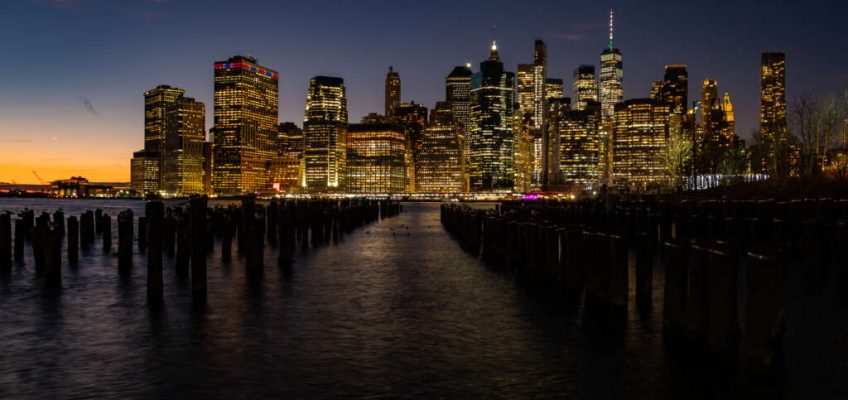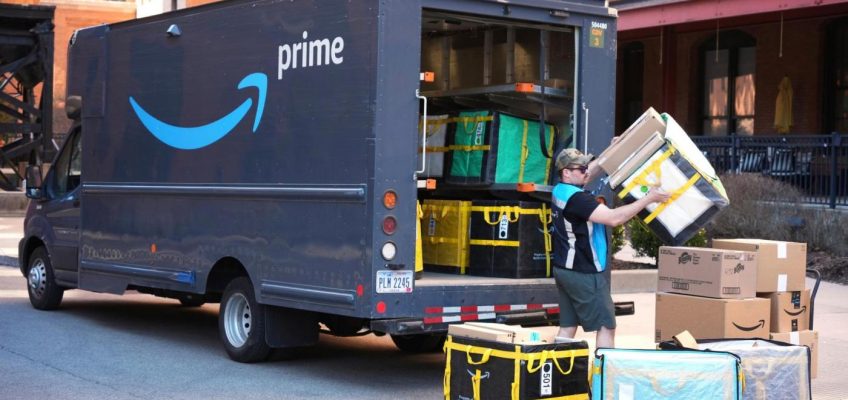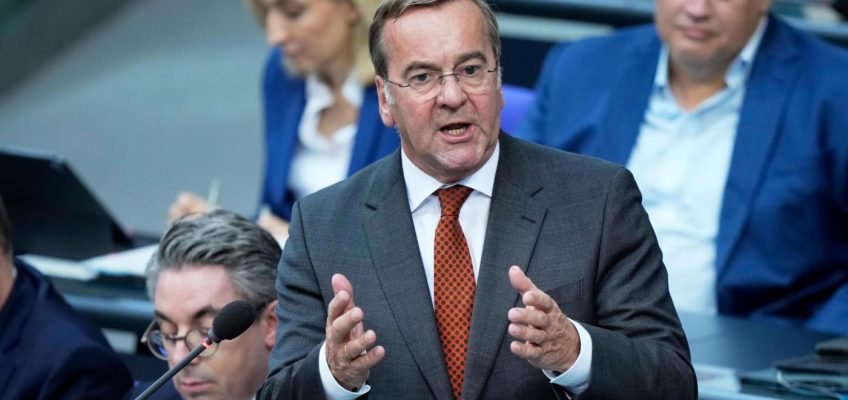Our Golden State harbors many treasures, a few of which can be found on a trip north to the San Francisco Bay area where visitors can explore nature and history as they restore, refresh and reset perspectives.
Where is this possible? Three locations stand out as perfect sites for restorative journeys: Angel Island State Park, which lies a short ferry ride from Tiburon; China Camp State Park, a wild and historic space near San Rafael; and Rosie the Riveter World War II Home Front National Historic Park, situated in Richmond. Travel between the three, all located north of San Francisco, is just under 30 miles, making them an easy adventure that bypasses the urban congestion of the big city.
Angel Island: Solitude and history
A walk around Angel Island today combines an embrace of natural beauty with the physical remnants of our nation’s fraught history.
Great views and most points of interest are found along the island’s five-mile perimeter road, reached most quickly via the Northridge Trail, which climbs 140 steps, some of which require an extra push to bypass a missing tread. It’s slow work for a backpacker carrying 30-plus pounds, and though handrails are present, the way is narrow enough to preclude easy passage of slower hikers.
Once emerging on the paved road surface, views of the bay, of Oakland, the Bay Bridge and San Francisco begin to unfold as does the history of the land.
Dating from the Civil War, Angel Island has served as a defensive position, way station, detention center, and launch point for thousands. During the Civil War, fortifications at Camp Reynolds on the island’s southwest side were constructed to protect San Francisco against Confederate attack. The island also was used as a quarantine center and discharge station for troops returning from war; it housed a U.S. Immigration Station for some 30 years, and served as a launch point for troops headed to war in the Pacific.
Perhaps less known, but likely no less significant, some 700 Japanese Americans were briefly interned here during World War II. The government chose this location to hold a hearing in an attempt to deport union labor leader Harry Bridges, and, during the Cold War, Nike anti-aircraft missiles were here. The former missile site, along with U.S. Coast Guard stations now on the island, are closed to visitors.
But there’s still plenty to see and do, and numerous ways to get around. In addition to hiking, island visitors can rent mountain and electric bikes as well as arrange tram tours of the island sites.
Ferries from Tiburon and San Francisco deliver visitors to a terrace at Ayala Cove, where State Parks employees help direct traffic. A small cafe, bike rentals and tram service are nearby as well as a small gift shop and a kiosk where campers check in to confirm their reservations and campsites.
Upon arriving, to the right lies the trail up to the perimeter road, and the walk eastward to the U.S. Immigration Station, Fort McDowell and East Bay, Sunrise and the North Garrison Group campsites.
To the right is a picnic area, the visitors center, and a route to the Civil War installations, the western Kayak Group and Ridge campsites on the southwest side of the island.
Wind can be an issue for campers. The Ridge campsites are reported to have the best views of San Francisco, but also high winds. A recent visit found even the more protected East Bay sites windy, but the nighttime view of the lights from Oakland, the Bay Bridge and San Francisco is still stunning.
Campsites are a step above primitive, with nearby water, pit toilets, picnic tables and food lock-up boxes provided. Visitors in search of flush toilets and wash basins can find them at the visitors center and the immigration station; they’re also reported at other building installations on the island.
Visit a national park for free on Saturday, Sept. 27
Rome’s airport opens luxurious dog hotel with pampering services
Unexpected diversions and soccer in Scandinavia
Five perfect weekend trips to take this fall
Finding happiness in amber: On Germany’s Baltic coast, people go hunting for the precious pieces
For school groups and first-time visitors, perhaps most attractive for exploration are the former U.S. Immigration Station and Fort McDowell, said to have the eerie feel of a ghost town.
Slipping in between groups of youngsters on school trips to the Detention Barracks Museum at the immigration station, it’s easy to get a feel for how challenging and sad life could be there.
Dormitories served as a stopping point on a journey to America for between 500,000 and 1 million would-be immigrants. As many as one in five were denied U.S. entry, and it’s estimated that more than 100,000 each of Japanese and Chinese immigrants were held here. Families were split between men’s and women’s dorms. Some were held for as little as two weeks; others were detained for months.
Wandering through the all-but-empty dormitories today, visitors see the spaces marked by the vertical support poles, which once housed nests of bunks. Carved into the wood walls, faint Chinese characters emerge with personal messages of grief, longing and anguish at their separation from loved ones.
On the second floor are spaces where the immigrant experience is recreated, with furnishings and personal belongings on display as if they were left by recently departed owners.
Below the detention center barracks, Angel Island’s original fog warning bell sits at the end of a landing pier where the immigrants made their first steps onto U.S. soil.
A little more than a half-mile farther down the perimeter road, visitors can explore the empty shells of Fort McDowell, the buildings of which served as detention camp, quarantine and recruit center before an World War II expansion as it became a major embarkation point for some 300,000 servicemen heading to war in the Pacific Theater.
Today, the buildings stand as mute witnesses to the mobilization of past war efforts. You can walk around and through some shells of structures that were used as hospitals and look over giant barracks, and a massive barrel roof building where cooks could serve more than 1,400 men in one sitting and 12,000 meals a day.
The building also housed a movie theater, a basketball court and had space for dances and entertainment on stage. Today, it’s a crumbling behemoth, closed off but still impressive.
Nearby are barracks, a guard house, the old Post Exchange building, officers’ quarters and a church.
The wall of a World War II hospital building on the right as one enters the site also still bears the imprint of the U.S. artillery symbol of crossed cannons indicating earlier uses of the building. A walk around the building gives ample opportunity for visitors to peek in and see external walkways and staircases that form an intricate connection for rooms and floors. Warning signs advise visitors not to venture inside.
Camping? The turn up to the East Bay campsites follows a road uphill between two service buildings between the immigration station and Fort McDowell. The walk takes campers past a side turn to a group site uphill past a roadside water spigot, after which a fork in the dirt road gives campers an option to head right to the East Bay sites or farther forward to the Sunrise sites.
Early and mid-week sites may be easier to secure, and don’t be surprised by wildlife. On a recent trip, a scat deposit near the picnic table gave evidence of a nocturnal visitor.
Also, when pitching a tent, take care to select the most level ground available or else your sleeping bag slides and awkward positions within the tent are likely. Igloo water coolers were provided at East Bay sites, and park workers were onsite checking conditions. A small camp stove and hiker’s rations were sufficient for the day.
San Francisco weather conditions can be variable, so it’s best to check temperature forecasts when packing to camp.
Getting there: Visit via ferry service out of Tiburon or Golden Gate; parks.ca.gov, 415-435-5390
China Camp State Park: Strange beauty
Old wood barn at China Camp State Park, in San Rafael, California. (Dreamstime/TNS)
About 14 miles north of Tiburon, via State Route 131 and U.S. 101 north, is San Rafael; beyond are the wilds of the China Camp State Park. This strange and beautiful location is open from 8 a.m. to sunset for daytime visitors, with a hosted campsite for overnight stays. Note: Recent fires have affected travel in this area, so check travel advisories.
Where campsites on Angel Island offered extensive panoramic views of the East Bay, China Camp visitors sleep among tall trees that see evening mists pervade the night as turkeys and deer wander through the area.
In the 1880s, China Camp was home to a fishing village of some 500 who caught and dried shrimp for export to China, but the enterprise was all but shut down after a ban on shrimp exports, restrictive fishing laws and the Chinese Exclusion Act made the micro-economy unsustainable. In the years since, only one family held on, the Quons, who operated a general store, cafe at the pier and continued to shrimp using new, legal methods.
The resident shrimper of the Quon family died in 2016, but the pier, shrimp processing equipment, cafe and an old, idled boat on the beach are there to explore and enjoy.
Nearby, visitors heading northeast on the winding park road will find a turnoff to the campgrounds just south of the park’s eastern gate. With 30 closely configured campsites, full bathrooms, firepits, foodboxes and picnic tables, overnighters at China Camp will find a peaceful, comfortable landing to shake out their gear and enjoy the surroundings.
Campsites are a short distance from the parking lot, where live-in hosts will pop out of what looks to be a permanently parked Airstream to offer advice or assistance as needed. Visitors have to pack or carry in their gear some 50 to 300 yards, but wheeled bins are available for those with big loads.
Once settled, campers can follow the Shoreline Trail from camp to make a loop around Turtle Back Hill, a promontory that juts out into a brackish, intertidal salt marshlands. On a recent visit, native flowers were prominent along the shaded pathway, as were numerous growths of poison oak.
Getting there: 730 N. San Pedro Road, San Rafael; parks.ca.gov, 415-456-0766
Rosie the Riveter: Honoring home front heroes
Rosie the Riveter World War II Home Front National Historic Park. (Dreamstime/TNS)
For those headed toward Angel Island and China Camp coming from the Sacramento area, it’s easy to take in the Rosie the Riveter World War II Home Front National Historic Park in the morning and finish the day at China Camp. And if the goal is to explore national and California history, this site fits right in.
Pre-World War II Richmond is described as a small, working-class community with a combination of industrial and rural landscapes. A Pullman refurbishing factory was there, and railroads and Standard Oil, too. It provided access to shipping via a deep-water channel completed in the 1920s, and Richmond had shipping terminals and a Ford motor assembly plant.
In 1940, Richmond’s population was 23,600. With its already built infrastructure, the city was primed to become a powerhouse of the U.S. wartime production effort; it quickly exploded to a population of 93,700 with a complex of four Kaiser shipyards that produced 747 vessels, mostly Liberty and Victory ships, needed for the U.S. armed forces.
The park’s visitor center is located in the old Oil House, which supplied power to the adjacent historic Ford Motor Assembly Building that was used for Jeep and armored vehicle production during World War II.
Inside, visitors can learn about how pre-fab techniques helped modernize and speed shipbuilding techniques, and how vital women and minority workers were to the U.S. and Allied victories of World War II. Women weren’t just riveters, as the museum’s name might imply; they were welders, draftspersons, machinists, painters — and did any job a man could do.
Workers came from across the country. They were single women, mothers and wives, from across many racial and ethnic backgrounds. This is in part due to Executive Order 8802 that required fair hiring practices in the defense industry. Bolstering that order was the Double V campaign, a national effort promoting victory on two fronts: abroad against fascism and the Axis powers, and at home against systemic racism and discrimination.
Exhibits in the museum explore this history with dynamic displays and films recounting the efforts of those working on the home front.
Getting there: 1414 Harbour Way South, Suite 3000, Richmond; nps.gov/rori, 510-232-5050
Know before you go
ANGEL ISLAND STATE PARK
For more about the history of Angel Island and to plan a trip, visit the following websites — especially before booking a campsite and to confirm that ferry schedules are suitable for your travel plans.
California State Parks
Camp site reservations:
– Individual sites are $30 per night, with an $8.25 reservation fee.
Tiburon ferry service:
– Summer service runs daily; travel time roughly 15 minutes; adult ticket, $18. For campers, reasonable multiday parking is available at the lot near City Hall, about a half-mile from the ferry terminal.
Golden Gate ferry service to Angel Island:
– Daily service; travel time roughly 30 minutes; adult ticket, $15.50.
Angel Island Conservancy
Angel Island Immigration Station Foundation
National Trust for Historic Preservation, “Messages from Angel Island”




